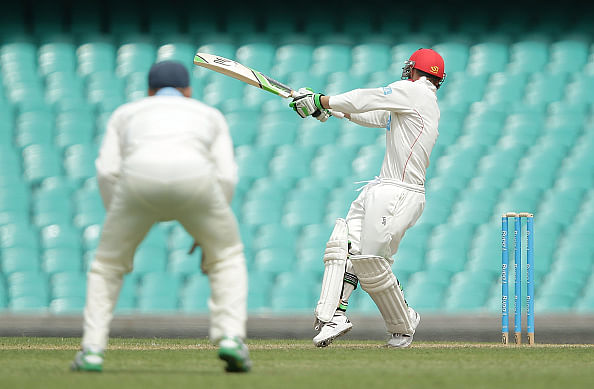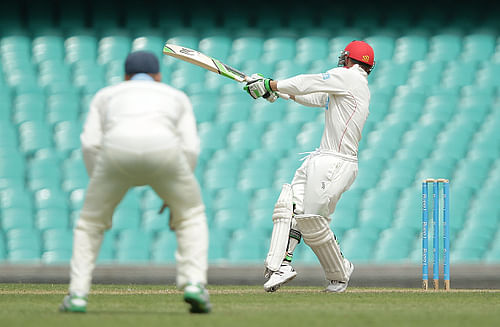
The rare and freakish injury which led to Phillip Hughes's death

Australian batsman Phillip Hughes passed away in unfortunate circumstances on Thursday after he was struck on the head by a Sean Abbott bouncer during a Sheffield Shield match on Tuesday.
Explaining what exactly happened after the ball hit him, Cricket Australia (CA) doctor Peter Brukner said that one of the main arteries to his brain was compressed, and this condition can be instantly deadly. The left-hander stood for a second before collapsing face-first onto the pitch.
"Phillip took the blow at the side of the neck and as a result of that blow his vertebral artery, one of the main arteries leading to the brain, was compressed by the ball.That caused the artery to split and for bleeding to go up into the brain. He had a massive bleed into his brain. This is frequently fatal at the time,” Dr Brukner said.
"However, Phillip was resuscitated and then managed by, in particular, Dr John Orchard, the Cricket NSW doctor, and paramedical staff, and we were fortunate enough to have Dr Tim Stanley, an intensive care specialist from Newcastle, who was in the crowd and came and helped. They all did an excellent job of keeping Phillip alive and he was able to be transported by ambulance to hospital in reasonable condition," he further added.
Pressure off his brain had to be removed immediately
Hughes was immediately taken to the St. Vincent’s hospital in Sydney and was admitted for surgery. Dr. Tony Grabs, the doctor at the hospital, said that it was essential to release the pressure off Hughes’s brain due to the contracted artery.
"The head injury that he suffered was catastrophic.He arrived well intubated and [had been] resuscitated very well. It was our recognition that the first priority in this situation is to get an urgent CAT scan of the head to determine what we can do. This CAT scan occurred very early and it was recognised early that we had to make an intervention into the brain to actually help get the pressure down in the brain,” Dr. Grabs said.
“What sometimes happens in the brain is, if you put blood around the brain, a small amount, you will start to become a bit drowsy. If you put a lot of blood around the brain, you will become unconscious. Once we had made the diagnosis of blood around the brain, and it's a subarachnoid blood, which is under pressure from the artery, the immediate transfer to theatre was necessary. He went to theatre and had extensive surgery to remove some of the skull around his brain to help allow the brain to expand so it wasn't compressed," he explained.
The surgery lasted for 80 minutes after which the 25-year-old was taken back to the Intensive Care Unit (ICU) and then into an induced coma. However, all the efforts to save his life went in vain as he was declared dead on Thursday morning.
Such incidents occur very, very rarely: CA Doctor
When enquired whether Hughes’s life could’ve been saved had he been taken to the hospital faster, Dr. Brukner said that such issues were more vital only when the patient wasn't undergoing treatment.
"I think ambulance waiting time is really more relevant when the injured or sick person is not being treated. By any standard or observation he was receiving excellent quality treatment from Dr Orchard and Dr Stanley and the paramedics at the ground, and hence arrived at the hospital in excellent condition," he said.
Replying to queries about having a closer look at the way helmets are made in today’s times, Dr. Brukner said that one has to keep in mind that the incident that happened with Hughes was an extraordinarily rare one.
"This was a freakish accident, because it was an injury to the neck that caused haemorrhage in the brain. This condition is incredibly rare. It's called vertebral artery dissection, leading to subarachnoid haemorrhage - that's the medical term for it,” the CA doctor said.
“If you look in the literature there's only about 100 cases ever reported, so this is incredibly rare. Only one previous case ever reported as the result of a cricket ball. So I think it's important to realise that yes, we need to review all our procedures and equipment, but this is an incredibly rare type of injury," he further added.